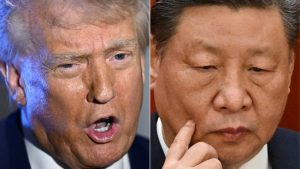
Pennsylvania Governor Josh Shapiro’s home set on fire by arsonist while his family slept
Pennsylvania Gov. Josh Shapiro and his family were forced to evacuate the governor’s mansion after an arsonist set it on fire overnight while they were sleeping, he announced.
Read More
Comment
0

Organ trafficking case: What Ekweremadu could have done differently to avoid jail
Experts say Ekweremadu’s failure to follow legal protocols on consent and medical clearance led to his UK jail sentence.
Read More
Comment
0

Sancho rescues draw for Chelsea as Wolves stun Spurs 4-2
Sancho’s late goal earned Chelsea a 2-2 draw with Villa, while Wolves overwhelmed Spurs 4-2 in a high-octane clash.
Read More
Comment
0

Salah shines as Liverpool edge closer to Premier League title
Mohamed Salah scored and assisted in a key win as Liverpool kept pace in the Premier League title race.
Read More
Comment
0

Chelsea player ratings vs Ipswich: Sanchez shaky, Palmer underwhelms again
Ipswich went into the break 2-0 up after goals from Julio Enciso and Ben Johnson.
Read More
Comment
0

Corper Raye’s ₦1.2M shopping splurge stirs debate
NYSC allowee or big spender? The Raye shopping story that got Nigerians talking
Read More
Comment
0

China calls on U.S. to fully lift Trump-era reciprocal tariffs
China is calling on the U.S. to “completely cancel” Trump-era tariffs, saying they harm global trade and go against bilateral agreements.
Read More
Comment
0

Secretary Rubio: Revoking visas is key to keeping America safe
Rubio says visa revocation is a vital tool to protect Americans, calling it a necessary step when credible threats emerge.
Read More
Comment
0
US court orders FBI, anti-drug agency to release investigation dossiers on Tinubu
In 1993, Bola Tinubu forfeited $460,000 to the U.S.
Now, documents confirm the FBI, DEA, and IRS believed the funds were tied to drug money laundering.
What changed in 2024? A court just ruled those records must be made public. https://t.co/aA3anB4Gux pic.twitter.com/2Wx9ckUIlc— Premium Times (@PremiumTimesng) April 13, 2025
Comment
0

Why China is unlikely to win a trade war with the U.S.
China’s steep tariffs on U.S. goods are straining its economy. Retaliatory tactics risk scaring investors, triggering inflation, and testing public patience as economic pressure mounts.
Read More
Comment
0